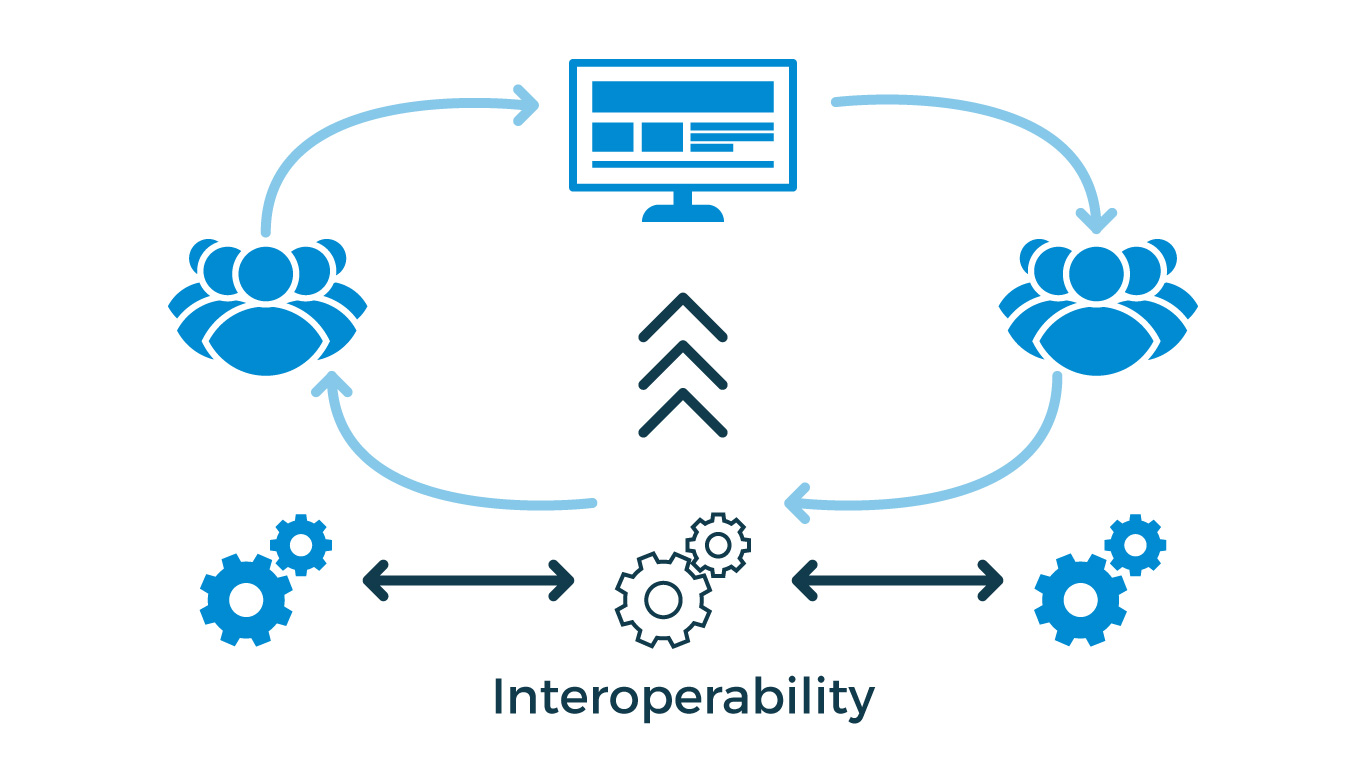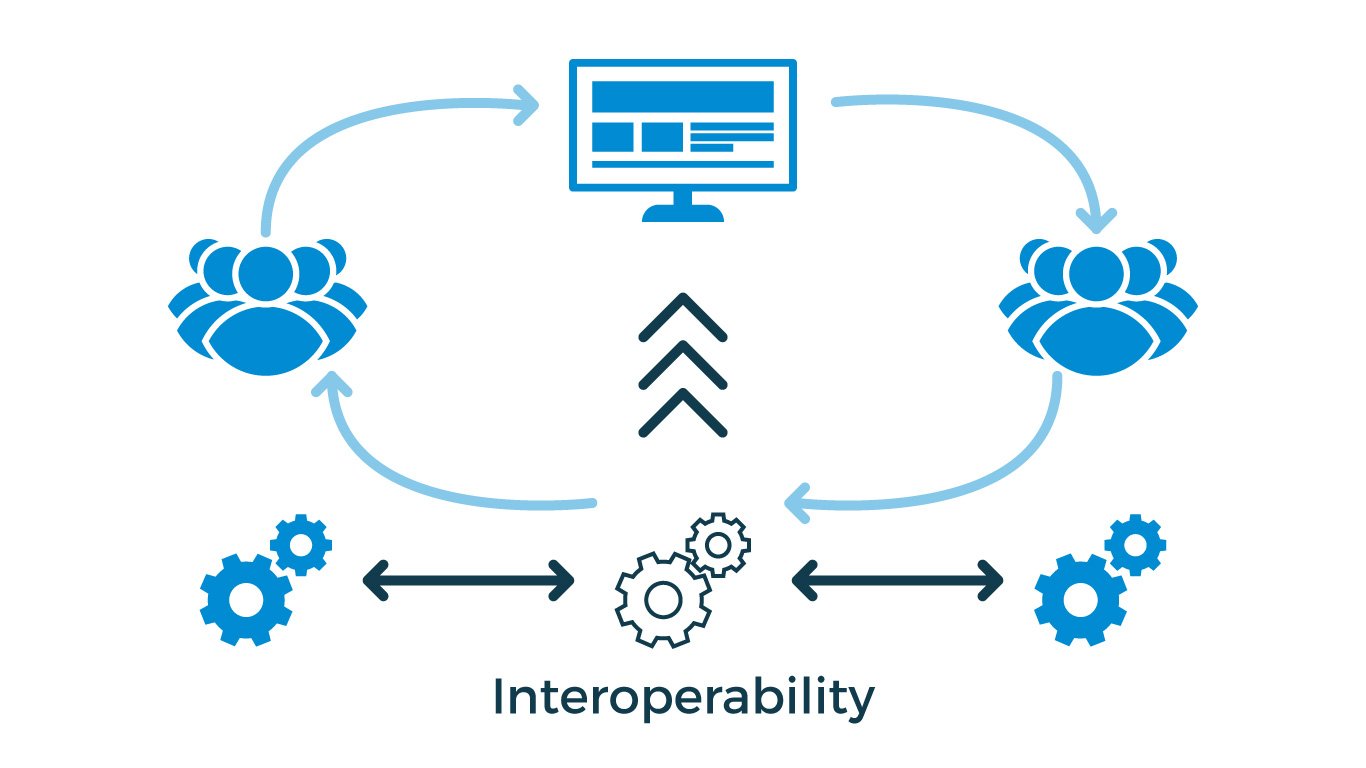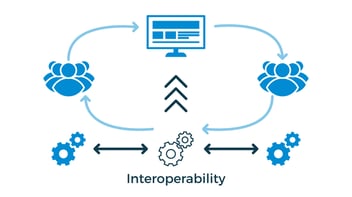In the age of flexible technology, interoperability and system integration are a necessity, especially for companies. We explore the reasons why.
In the era of flexible technology and extensibility, interoperability is no longer an added value, it is a necessity.

Market diversification is apparent in the technology world. The supply of software, technological tools and applications has expanded enormously over the last ten years, painting a picture in which the big tech giants have a smaller share of the total market than they did years ago.
This has forced software and technology vendors to place interoperability and system integration as an increasingly important feature of their technological solutions.
In fact, many technology providers already offer solutions designed for extensibility. That is, the ability of a software or technology to be extended by another software, which, in addition, does not necessarily have to be from the same vendor. This phenomenon is known as flexible technology. Flexible because it can be extended and because it can be extended by another vendor.
Nowadays, a software that does not integrate with other platforms and technologies will hardly have its place in the market, even if its performance is better than that of other tools.
Interoperability in the age of flexible technology
Today, interoperability is hard to avoid. Think for a second about your company and the tools you use every day. Chances are that they don't belong to the same provider.
Companies are increasingly technological, digital and data-driven. The inclination towards technology and the use of data implies more tools that, in addition to integrating with each other, must enable data integration. Data is already a fundamental asset in the business world and in order for organizations to follow their natural evolution towards an increasingly data-driven culture, it is necessary that corporate softwares and systems do not block data flows.
Data integration is a major part of system integration. Therefore, when investing in any technological solution, companies should explore their interoperability possibilities.
In order for the variety of software, systems and tools to be unproblematic, systems must have the ability to exchange data and information. In other words, interoperability.
Interoperability in the business environment
Why do companies need interoperability? Essentially, to be able to operate seamlessly. Specifically, interoperability between systems is necessary so that:
- Business processes and operations are not interrupted.
- Information can be shared internally and externally.
- Proper management of metadata.
- Data can be analyzed and fully exploited.
- Data can be consolidated.
- Information can be transformed into knowledge.
- Managers can make data-driven decisions.
When it comes to data exchange, we must bear in mind that each system requires data in a specific format. Therefore, in order for business flows to run smoothly, the systems need the data to be transformed so that they can understand it. Basically, each system speaks a different language so to understand each other they require an interpreter, which in this case are the platforms and/or processes that enable interoperability such as ETL, for example.
Interoperability platforms and enterprise information integration systems address the challenges of integrating data across multiple systems:
- Data standardization and normalization.
- Integration of information between systems, platforms and APIs.
- Adaptation of the information to each system.
- Data consolidation and data quality.
- Application of data governance policies.
- Accessibility of information in real time.
Interoperability between systems also facilitates the automation of processes, since it allows the exchange of information without interruption and in real time.
On the other hand, having an integrated technological environment is essential for companies to be able to update their operational tools and software when needed. This possibility is linked to scalability and the possibility of responding to long-term IT needs to increase productivity.
Technology is evolving faster and faster, and so are companies' needs. The frequency at which organizations update their infrastructure, technologies and the protocols linked to these tools is increasing. For this technological transformation to be possible, interoperability must be a reality. In addition, integrated systems allow companies to implement a new technology or upgrade software without having to give up their legacy infrastructure.
Conclusion
Interoperability and flexible technology will become more and more important as software markets continue to diversify. In the business environment, interoperability is critical so that business processes and data flows are not disrupted, operations can be automated and the investment in new technologies does not become problematic.



